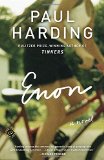Summary | Excerpt | Reading Guide | Reviews | Beyond the Book | Readalikes | Genres & Themes | Author Bio

When Kate died, Susan's family stayed for three nights at a hotel off the highway two towns over. They came to the house the day before the funeral. Susan and her mother and sisters sat on the couch and went through the shoe boxes of family pictures we had and chose the ones she liked best so they could make a display for the funeral. Susan sat in the middle and her mother and sisters pulled stacks of photos from the boxes and shuffled through them and showed them to her.
"Look at this one, Susie. She's so cute in this canoe."
"What about this one, hon? Which birthday is this?"
"Look at the face she's making here. Jesus, she looked just like you."
Susan's mother remained composed. It seemed she felt she had to, because she was parenting her daughter again, in a way that she had not done in a long time. Perhaps she had never had to help Susan through a tragedy. Susan had never told me about any deaths in her family. Her sisters wept and talked while they went through the photographs. They wiped their eyes with tissues and rubbed off the tears that dropped onto the photos. Susan's father paced back and forth in front of the bay window in a discreet but vaguely military manner, as if awaiting orders.
"We should have two boards for pictures," he said at one point. "No? One for either side of the urn?" Susan's mother and sisters stopped riffling the pictures and looked at him.
"Yes. Yes, I think that's right."
"I'd better go get them, then. I saw an office supply store off the highway."
Susan's family debated about what sort of display board they should buy and with what to stick the pictures onto the board. While they weighed the advantages and disadvantages of cork and thumbtacks, they stole looks at Susan and had a wordless conversation about her over and above the discussion about picture arrangements. My impulse was to rescue her. Had it been my own family, I'd have felt overwhelmed. I'd have felt the need for quiet and solitude. The practical trivia of double-sided tape and making sure the photos could be mounted and taken down without damage was meaningless static. I suddenly had the urge to scream, to make all the prattle stop. It all seemed like a flimsy curtain of noise yanked in front of the silent void of Kate's absence.
"Sue," I said. Her family stopped talking. I tried to sound soothing, calm. "Sue, do you want to take a little break, go upstairs and lie down for a little?" Both of Susan's sisters put their arms around her and leaned their heads against hers.
"Yeah, Susie. You need a break?" her younger sister asked. Sue wrapped an arm around one sister and put her cheek against the side of the other's face.
"No," she said. She took a deep breath. "No. This is good."
She looked at me. "I'm okay, Charlie. Thanks. I'm good. Come help us. You took so many of these. Help us figure out what we should put up."
Susan's father said, "Okay, then. I think I've got what we need. I'm going. Want to come, Charles?"
"No," I said. "No. I think I need to lie down a little myself. Thanks. I just need to go upstairs and lie down a bit."
I broke my hand five days after Kate's funeral, three days after Susan's family flew back to Minnesota. I woke up that Sunday morning on the living room couch after having spent most of the night sitting in the dark, exhausted and unable to sleep. It was one in the afternoon. I experienced again the impossible grief of remembering that my daughter was dead after the little sleep I had managed had cleared my mind of the fact. Each time that happened, I felt more worn away, less able to suffer the weight. I was curled up in an old afghan and turned toward the back of the couch.
"You need to get up, Charlie," Sue said. I couldn't see her, but I could tell from her voice that she was in the doorway leading to the kitchen. "It's one o'clock. I've been trying to be quiet all day, but I need to do things. I need your help." I stared at the green velvet upholstery, which Kate and I had always agreed was the color of new ferns, and said, "Everything is shit because Kate's gone." Susan remained silent. "Do you know what I mean, Sue?" I said. I turned myself over to see her. She was leaning against the door frame, hands at her sides. Her face was pale and swollen and her eyes were bright red and had black circles under them. She shook her head.
Excerpted from Enon by Paul Harding. Copyright © 2013 by Paul Harding. Excerpted by permission of Random House. All rights reserved. No part of this excerpt may be reproduced or reprinted without permission in writing from the publisher.
The whole problem with the world is that fools and fanatics are always so certain of themselves, and wiser people ...
Click Here to find out who said this, as well as discovering other famous literary quotes!
Your guide toexceptional books
BookBrowse seeks out and recommends the best in contemporary fiction and nonfiction—books that not only engage and entertain but also deepen our understanding of ourselves and the world around us.